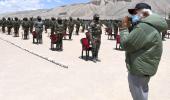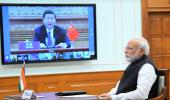India must be aware that there is no question of the US fighting the Chinese on land. We have to fight our own battles, points out Virendra Kapoor.
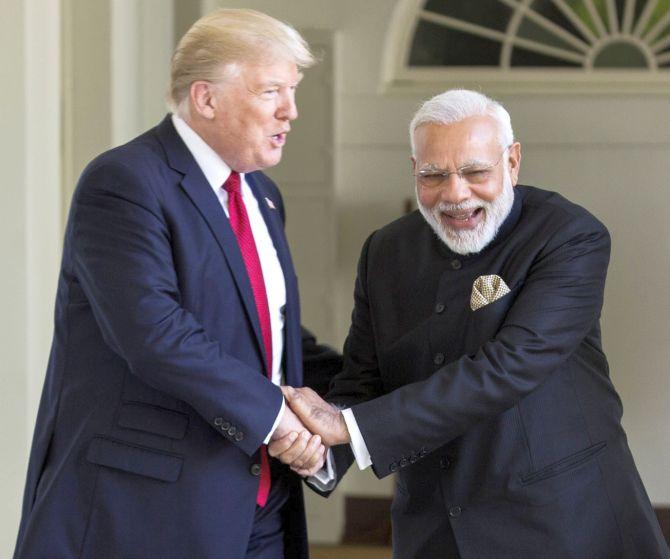
The world at large has a vital stake in how US-China relations develop in the coming days. The largest and the second largest power are now veering away from each other, raising the specter of Cold War-2.0.
The first Cold War ended with the fall of the USSR and its eventual breakup into several independent nations.
The successor State rose from the detritus of the Soviet Union, but even then strongman Vladimir Putin's Russia is no longer the principal power to measure up its erstwhile rival, the US.
That place now belongs to China, which all through the Cold War was at loggerheads with its Communist neighbour.
Russia is a much smaller power than China, though it does boast of a superior nuclear arsenal. The reason why the Cold War 2.0 may be fiercer is that the Chinese economy is far bigger than the USSR's was at any time during the 45 years of the Cold War.
Besides, China is openly expansionist, ready to use force to expand its sphere of influence on land and sea.
While competition with the US had hollowed out the USSR economy, China, in fact, owes its rise to the US which believed an economically strong China would embrace democracy.
Belying that hope, China now threatens to bite the hand that fed it these forty years since Kissinger-Nixon embraced the wily pragmatist Mao Zedong.
More importantly, China is unlikely to repeat the mistakes of the USSR.
Also, the world has vastly changed since the fall of the Berlin Wall signaled the end of the Cold War. It is interlinked economically through trade, technology, energy supplies.
Race to develop superior technology, especially Artificial Intelligence, animates both the USA and China.
The recent ouster of the Chinese tech giant, Huawei, from the US and from a number of other democratic countries underlines the next big battleground, that is, the cyber space.
Given the Chinese intimidation of its neighbours, given how it has nullified the promise of a 'one country-two systems' in Hong Kong, it is natural for the free world to sit up and take note.
It is not surprising, then, the US has now begun to openly diss the militant Chinese policy in every available forum.
Admittedly, some of the tough talk emanating from President Trump and his articulate Secretary of State Mike Pompeo may be with an eye on the November presidential poll.
But there is no denying that a large swathe of the American political and intelligence establishment is deeply concerned at the rise of China and its increasingly rogue behaviour be it in the South China Sea, the Indo-Pacific, or against trading partners such as Australia, Germany and other small nations.
Therefore, whoever comes to tenant the White House January next, curbing the Chinese menace to the peaceful world order is likely to remain on top of the US agenda.
Like a bull in a china shop, Xi Jinping's belligerence now informs China's foreign policy. Almost all nations in China's vicinity feel threatened by its aggressive behaviour.
Its Belt and Road project seeks to tie down most partnering nations into a subservient relationship, with a number of them forced to cede sovereignty over large tracts of land, sea et al.
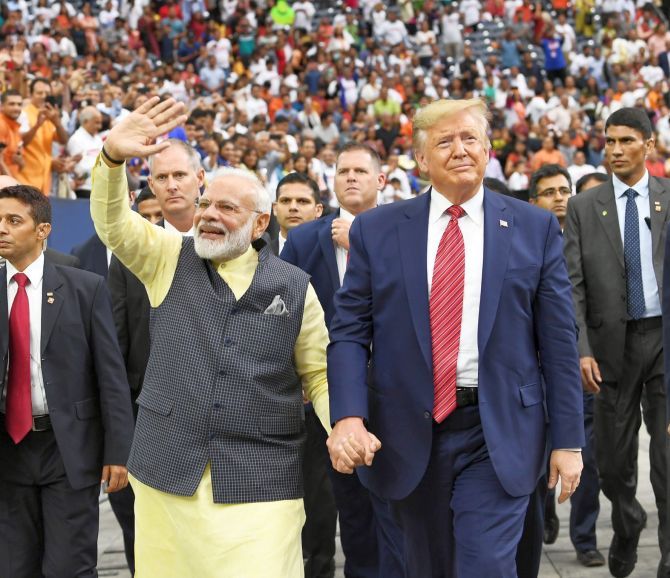
China has now fully turned on its benefactor. Last week, Pompeo minced no words in describing the threat China poses to the global order.
It was perhaps only appropriate the US-China love affair should end where it had all begun. Almost fifty years after Nixon and his cerebral secretary of state Henry Kissinger had pulled China from the fringes of the wider global community into the mainstream, Pompeo, speaking at the Nixon Library, laid out in great detail the vicious nature of the Chinese regime.
He painted a scary picture of an evil empire out to menace the world. 'This is not about containment... It is about a complex new challenge that we have never faced before. The USSR was closed off from the free world. Communist China is already within our borders.'
He accused Beijing of seeking to subvert democratic nations, penetrating their security, compromising their vital supply systems, etc.
China, Pompeo said, seeks domination.
'Securing our freedoms from the Chinese Communist Party is the mission of our time, America is perfectly positioned to lead it because our founding principles give us that opportunity.'
You can discern the coming of the Cold War -2.0 in Pompeo's forceful elucidation of the Chinese threat. His ringing message inverts the Ronald Regan's famous dictum about Russia, 'trust but verify', into 'distrust and verify'.
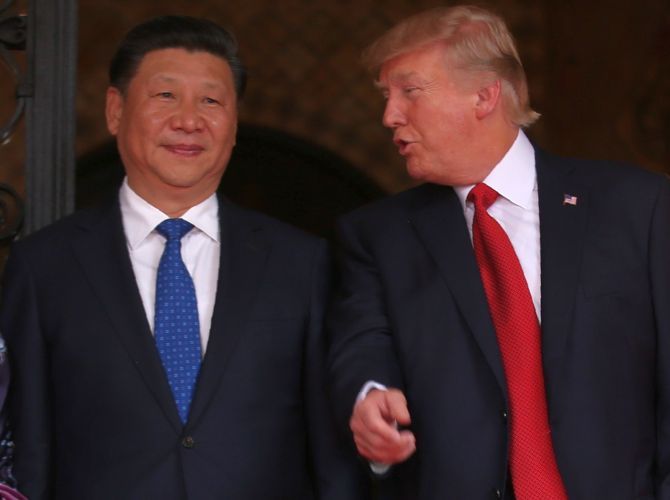
How we wish India's rulers instead of being taken in by the 'bhai-bhai' and 'jhoola' diplomacy had heeded at least Reagan's, if not Pompeo's advice.
Even now, it may not be too late to heed what Mao had said in 1949. 'Cast away illusions, prepare for struggle.'
Seventy years later, China has risen to look America in the eye.
Let us begin our own struggle to be able to stand up to the evil power, hopefully, sometime in the not-too-distant a future.
Regrettably though, in concrete terms the US has done little to curb China's bellicose behavior thus far.
Aside from US warships occasionally flying the independence flag in the South China Sea and the Indo-Pacific, it has done nothing to deter China from violating the exclusive rights of the smaller nations like Vietnam, Thailand, Brunei, the Philippines, Malaysia, etc. under the international law of the sea.
Unless the US puts its money where its mouth is and actively defends the law of the seas against aggressive Chinese behaviour, China will continue to thumb its nose at the global community.
Calling the Chinese bluff requires that the US backs up its increasingly angry rhetoric with firm action in the disputed seas where China has virtually prevented smaller littoral states from exercising their lawful rights.
All of the above, has relevance for India, a victim of Chinese aggression. But India must be aware that there is no question of the US fighting the Chinese on land. We have to fight our own battles.
A two-front war at that, since the client State of Pakistan would be forced to step in on the side of its new colonial masters.
But the fact the democratic world may now be joining hands to try and stop the bully before it wrecks the global order can be morale-boosting, especially if it translates into generous strategic military and logistics help.
Feature Presentation: Rajesh Alva/Rediff.com
